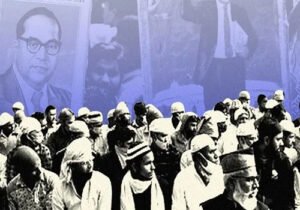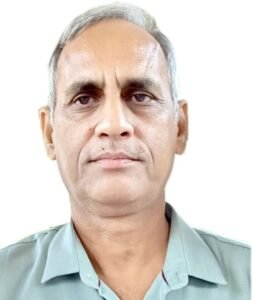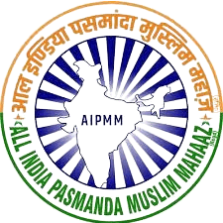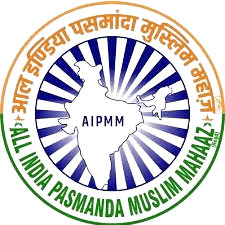The Muslim society in the Indian subcontinent is not merely a religious entity but a deeply diverse, complex, and socio-culturally multifaceted community. Its structure is intricately tied to historical events, processes of conversion, regional cultures, caste systems, religious sects, and political factors. The internal dynamics between the dominant Ashraf (elite) and the marginalized Pasmanda (majority) groups have further highlighted this complexity.

1. Diversity of Muslim Society: Causes and Forms
(a) Historical Background and Spread of Islam
Islam arrived in the subcontinent in the 7th century through traders, Sufis, and later Turk-Mughal invasions:
– Western Coast (Kerala): Arab traders introduced Islam peacefully, blending it with local Malayali society.
– North India and Sindh: Islam entered through military conquests, gradually integrating into local society.
– Bengal and Bihar: Lower-caste and Dalit groups embraced Islam under Sufi influence, seeing it as a path to equality and dignity.
While Islam offered religious equality post-conversion, social equality remained elusive due to the Indian caste framework.
(b) Impact of Caste Structure
Despite Islamic egalitarian ideals, caste mentality persisted, dividing Muslim society into three main categories:
1. Ashraf: Claiming foreign descent (Arab, Persian, Turk, Afghan) or associating with them.
2. Ajlaf: Local converts engaged in crafts like weaving, blacksmithing, etc.
3. Arzal: Formerly untouchable groups, relegated to the lowest social rung.
The Ajlaf and Arzal together form the Pasmanda, comprising approximately 85% of the Muslim population.
(c) Religious Sects and Ideological Diversity
Muslim society is divided not only by caste but also by religious ideologies:
– Sunni and Shia: Rooted in political and succession disputes.
– Deobandi, Barelvi, Ahl-e-Hadith, Jafari, Bohra, Aga Khani: Reflecting diverse religious practices, leadership, and Sufi-Islamic traditions.
These differences have fueled not only ritual diversity but also socio-political struggles for dominance.
(d) Regional and Linguistic Diversity
Muslim identities vary by region:
– Kerala’s Mappila Muslims: Shaped by Malayalam and Arab influences.
– Bengal’s Muslims: Influenced by Fakiri and Sufi traditions.
– North India: Ansari, Kunjra, Qureshi, Salmani, and other castes maintain distinct regional identities.
2. Ashraf Dominance and Its Impact on Pasmanda Society
(a) Cultural Hegemony
The Ashraf class claimed superiority as “pure Muslims” based on their “foreign” lineage and Islamic scholarship, while Pasmanda culture, dialects, attire, and cuisine were disparaged.
(b) Dominance in Education and Religious Institutions
Institutions like Darul Uloom Deoband, Aligarh Muslim University (AMU), Jamia Millia Islamia, Muslim Personal Law Board, and others were historically led by Ashrafs, marginalizing Pasmandas from education, religious leadership, and policymaking.
(c) Historical Exclusion
– Mughal Era: Pasmandas were confined to military or service roles, far from power.
– Colonial Period: The Muslim League and Aligarh Movement reflected Ashraf aspirations.
– Post-Independence: Muslim leadership largely ignored Pasmanda concerns.
3. Pasmanda Movement: Renaissance and Organizational Growth
(a) Early Efforts
– 1980s: Shabbir Ansari in Maharashtra organized OBC Muslims for socio-political rights.
– 1990s: – Dr. Ejaz Ali founded the “All India United Muslim Morcha” (later renamed for political reasons).
– Ali Anwar Ansari established the “All India Pasmanda Muslim Mahaz (AIPMM).”
These groups raised issues of caste inequality, reservations, and representation, but became inactive post-leadership due to internal caste interests.
(b) Reorganization
During the COVID-19 period (2020-21), AIPMM was revived under leaders like Advocate Parvez Hanif, Muhammad Yunus, Sharik Adib Ansari, Akhtar Hussain Maroof Ansari, Dr. Faiyaz Ahmad Faizi, Professor Masood Alam Falahi, and Abdullah Mansoor.
– September 15, 2021: AIPMM was formally registered in Aligarh.
– Today, it operates in 12 states with offices in Delhi, Lucknow, Ranchi, and Patna.
AIPMM’s Ideology:
– Embracing Indian culture rather than opposing it.
– Social discrimination stems from caste, not Islam.
– Inspired by the Constitution of Medina, the Last Sermon, and the Treaty of Hudaybiyyah, promoting interfaith harmony.
4. Prime Minister Narendra Modi and the Pasmanda Discourse
(a) National Recognition
Since 2014, the Pasmanda discourse gained national attention for the first time. PM Modi stated:
> “Without bringing our poor Muslim brothers, the Pasmandas, into the mainstream, development is impossible.”
(b) Schemes and Inclusion
– Ujjwala Yojana: Gas connections for women.
– PM Awas Yojana: Housing for urban and rural poor Muslims.
– Ayushman Bharat: Free healthcare.
– Skill India: Training for Pasmanda youth.
– NEP 2020: Modern education in madrasas.
(c) Political Participation
Pasmanda individuals have been nominated to Rajya Sabha, legislative councils, boards, and commissions. This prompted opposition leaders like Rahul Gandhi to also engage with the Pasmanda discourse, a positive development.
5. Challenges and the Way Forward
(a) Internal Divisions
– Caste-based organizations (e.g., Ansari, Qureshi, Mansuri, Raini, Mirasi, Banjara, Lal Begi) compete rather than collaborate.
– Religious sectarian differences hinder social unity.
(b) Building Political Consciousness
– Pasmandas have been treated as a vote bank, with limited leadership roles.
– AIPMM and similar groups are raising awareness to address this.
The Pasmanda community is no longer just a “deprived” or “backward” group but a transformative force within Indian Muslim society. This discourse embodies social justice, religious inclusion, and the spirit of the Indian Constitution.
There is a need for dialogue between Ashraf and Pasmanda to embrace internal diversity and work toward a shared future. The Pasmanda discourse is not just a Muslim issue but a question of India’s inclusive democracy. Its expansion will energize and redirect India’s social justice movement.

Muhammad Yunus
Chief Executive Officer (CEO)
All India Pasmanda Muslim Mahaz

